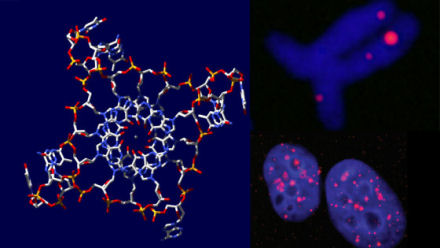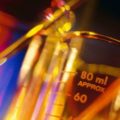
The phenomenal success of the erectile dysfunction drug Viagra (sildenafil) has not been without hiccups. There have been ongoing questions regarding the drug’s safety and concerns about its increasingly widespread recreational use by young men, often in conjunction with illicit drugs. But if new research from the Johns Hopkins Kimmel Cancer Center, er, firms up, then Viagra could, er, lift its below-the-belt status and become an important, er, tool, in the fight against cancer.
Sildenafil works by boosting the production of nitric oxide (NO), which dilates blood vessels and produces an erection. The Hopkins researchers say that NO also shows promise in “unmasking” cancer cells so that the immune system can recognize and attack them with greater efficiency.
Impressively, experiments on mice with implanted colon and breast tumors showed that tumor size decreased two- and threefold in the sildenafil-treated animals compared to mice that received no treatment. Lab-grown cancer cells treated with sildenafil showed similar results, as did tissue samples taken from head and neck cancer patients.
Writing about their work in the Journal of Experimental Medicine, the Hopkins team report that the boosted levels of NO appear to dampen the effects of a specialized cell that diverts the immune system away from tumors, allowing swarms of cancer-attacking T-cells to migrate to tumor sites.
Researcher Ivan Borrello said that tumors exploit NO-producing immune cells to create a kind of “fog” that keeps them hidden from T-cells. These NO-producing cells (myeloid-derived suppressor cells (MDSCs)), normally use NO to help bring the immune system back down to surveillance levels after an “attack mode” response to foreign material.
Sildenafil appears to reverse this process, stopping the production of nitric oxide by MDSCs, thereby allowing other immune cells to “see” the cancer and attack it, explained co-researcher Paolo Serafini. Gene expression patterns of the myeloid-derived suppressor cells were also analyzed and the researchers found that sildenafil blocked two regulating enzymes – arginase and nitric oxide synthase – which are key to triggering immune suppression via MDSCs. It was found that the arginase enzyme, which metabolizes a dietary supplement called L-arginine, also contributes to dampening the immune system through MDSCs much like nitric oxide, and its production can be reversed by sildenafil.
“Impotence drugs won’t cure cancer,” Borello stressed, “but could be used in addition to standard chemotherapy or immunotherapy treatments.” The team hope to conduct human studies next year.


















Comments are closed.